
Chris Giebink Michigan Class: Future Of Engineering!
The “Chris Giebink Michigan class” refers to courses taught by Dr. Chris Giebink at the University of Michigan, focusing on optoelectronics, photonics, solar energy, and lighting. These classes explore the latest research and innovations in these fields.
Want to learn from one of the brightest minds in engineering? Dive into Chris Giebink’s Michigan class and explore groundbreaking innovations in photonics and renewable energy.
What is Chris Giebink’s academic background – Learn More Here!
Chris Giebink has a strong academic background in physics and electrical engineering. He earned both a BA and BS in these fields from Trinity University. Later, he went on to complete his Ph.D. in Electrical Engineering at Princeton University, focusing on advanced topics like optoelectronics and photonic devices.
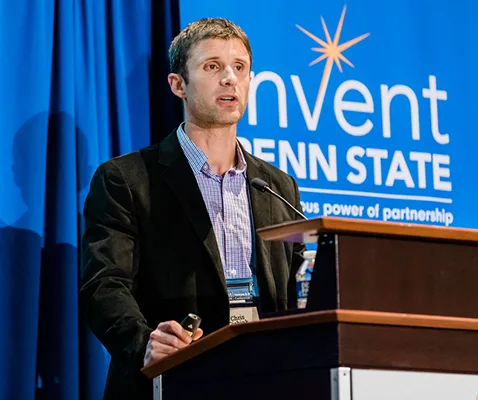
His education has provided him with deep knowledge in these areas, which he now shares with students at the University of Michigan, where he teaches and conducts research in cutting-edge technologies like solar energy and lighting.
The Key Areas of Research for Chris Giebink – Explore His Work Now!
Here are the key areas of research for Chris Giebink:
- Optoelectronics: Focuses on devices that combine light and electronics, using organic semiconductors.
- Photonic Devices: Researches advanced devices based on light, including applications in communication and sensing.
- Solar Energy Conversion: Works on improving the efficiency and effectiveness of solar energy technologies.
- Solid-State Lighting: Investigates lighting technologies that use solid-state materials for better energy efficiency.
- Semiconductor Lasers: Explores the development of lasers made from semiconductors.
- Nonlinear Optics: Studies the interaction of light with nonlinear materials for advanced optical applications.
READ MORE: Mywirelesscoupons.Com Game – Play More, Spend Less!
Where is Chris Giebink currently teaching – Discover His Role!
Chris Giebink is a professor at the University of Michigan, where he teaches in the Department of Electrical Engineering and Computer Science. He has been part of the university since August 2023.
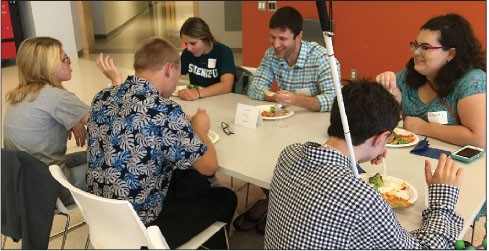
At Michigan, he shares his expertise in areas like optoelectronics, solar energy, and lighting technologies. His work focuses on advanced research and helping students explore these exciting fields.
Chris Giebink’s role before joining the University of Michigan?
- Position: Chris Giebink served as an assistant professor at Penn State University, where he taught and conducted research in electrical engineering and related fields. His role involved both teaching undergraduate and graduate students and leading research projects.
- Duration: He was at Penn State University for over 12 years, building a strong academic and research career. During this time, he gained extensive experience in both teaching and conducting cutting-edge research.
- Research Focus: His research focused on optoelectronics, photonics, and renewable energy technologies, aiming to improve devices and systems in these areas. He worked on advancements in solar energy, lighting, and semiconductor-based devices.
- Contributions: At Penn State, Giebink made significant contributions to the development of organic electronics and photonic devices. His work helped push forward innovations in energy-efficient technologies and advanced light-based devices.
READ MORE: Geekzilla Redes Sociales – Essential Insights For Fans
How does Chris Giebink contribute to solar energy technology?
Chris Giebink helps improve solar energy technology by working on ways to make solar cells more efficient. His research focuses on using organic semiconductors, which can enhance the performance of solar energy systems.
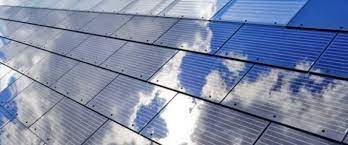
Through his work, Giebink aims to create solar energy solutions that are both cost-effective and more powerful. His goal is to make solar energy a more sustainable and accessible option for the future.
What are optoelectronic and photonic devices – Learn More About Their Impact!
Optoelectronic devices are devices that use both light and electricity to perform their functions. They include technologies like light-emitting diodes (LEDs), solar cells, and lasers, which rely on the interaction between electrical currents and light.
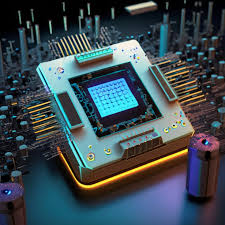
Photonic devices, on the other hand, focus on the use and control of light (photons) without necessarily relying on electricity. These devices are used in applications like optical communication, sensors, and imaging systems, where light is used to transfer information or capture data.
What is nonlinear optics, and how does it relate to Giebink’s research?
Nonlinear Optics:
- Nonlinear optics studies how light behaves when passing through materials in ways that are not directly proportional to its intensity.
- It involves changes in light properties, such as frequency, direction, or intensity, due to the material’s response to high light intensities.
Giebink’s Research in Nonlinear Optics:
- Chris Giebink’s research focuses on the behavior of light in semiconductor materials, particularly how nonlinear interactions can enhance device performance.
- His work helps develop advanced technologies like lasers, optical sensors, and communication devices, where controlling light properties is crucial.
How has Chris Giebink contributed to solid-state lighting?
Chris Giebink has made important contributions to solid-state lighting by researching ways to improve semiconductor-based lighting technologies, like LEDs. His work focuses on making these lighting devices more energy-efficient and longer-lasting.
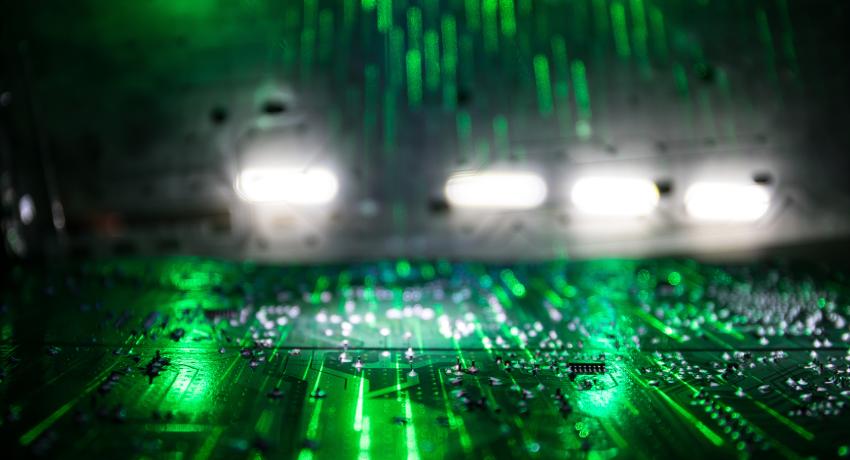
Through his research, Giebink aims to create cost-effective and sustainable lighting solutions. His innovations help advance the use of solid-state lighting, making it a more practical option for various applications.
Why Chris Giebink’s Michigan Class is a Must for Future Electrical Engineers?
- Cutting-Edge Research: The class offers an opportunity to explore groundbreaking research in areas like optoelectronics, photonics, and solar energy.
- Hands-On Experience: Students gain practical experience in developing and testing advanced semiconductor devices and technologies.
- Real-World Applications: Emphasizes the connection between theoretical knowledge and real-world engineering challenges.
- Innovation in Technology: Provides exposure to innovative technologies that are shaping the future of energy-efficient devices and renewable energy solutions.
- Expert Instruction: Learn directly from Chris Giebink, a leader in electrical engineering, preparing students for careers in advanced tech fields.
- Preparation for Future Leadership: Students are equipped to lead and drive innovation in industries such as electronics, energy, and sustainability.
What Courses Does Chris Giebink Teach at the University of Michigan?
Chris Giebink teaches courses in electrical engineering at the University of Michigan, focusing on areas like optoelectronics, photonics, and semiconductor devices. His classes cover both the theory behind these technologies and their real-world applications.
Students in his courses learn about important topics such as solar energy, solid-state lighting, and advanced electronics, gaining hands-on experience and preparing for careers in these growing fields.
READ MORE: Aesthetic:Pj0yuxljc60= Wallpapers – Download Free!
Frequently Asked Questions:
What can students expect to learn in Chris Giebink’s Michigan class?
- Students will learn about cutting-edge technologies in optoelectronics, photonics, solar energy, solid-state lighting, and semiconductor devices, gaining both theoretical knowledge and practical experience.
Why is Chris Giebink’s Michigan class important for future electrical engineers?
The class is vital because it covers the latest advancements in electrical engineering and prepares students to work with technologies that will shape the future of energy and electronics.
How does Chris Giebink’s class bridge theory and practice?
Giebink’s class blends theoretical learning with hands-on projects, allowing students to apply concepts to real-world problems in areas like solar energy, lighting, and semiconductor technology.
What makes Chris Giebink’s Michigan class stand out?
The class is unique due to Giebink’s expertise in emerging fields like organic semiconductors and renewable energy, providing students with exclusive insights and access to the latest research.
What kind of projects do students work on in Chris Giebink’s Michigan class?
Students work on projects related to the development of new materials for solar cells, semiconductor devices, and energy-efficient lighting, among other advanced technologies.
Conclusion:
Chris Giebink’s class at the University of Michigan provides students with important knowledge and hands-on experience in areas like optoelectronics, photonics, and solar energy. His courses prepare students to work on real-world challenges in electronics and renewable energy, making it a great opportunity for future engineers.
READ MORE:
You May Also Like

How To Watch The Roundup: No Way Out On Theflixer – Your Complete Guide!
October 20, 2023
https://infomania.space/como-publicar-en-instagram-desde-el-ordenador/130/2022/
February 27, 2024

